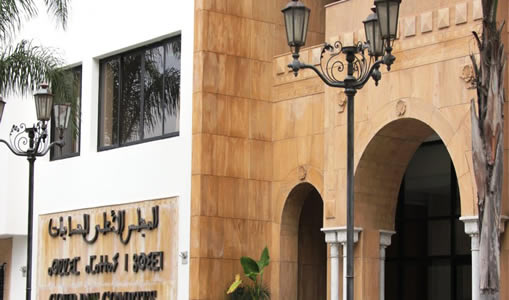The Court of Accounts of Morocco is pressing forward with its strategic goals for digital transformation, aiming to establish greater professionalism and transparency in its judicial reforms. Speaking in Rabat on Monday, the Court’s Secretary-General, Abdelaziz Koulouh, highlighted that these objectives are crucial to enhancing the effectiveness and accessibility of Morocco’s financial jurisdictions.
Presenting the 2025 budget plan to the House of Representatives’ Committee on Justice, Legislation, Human Rights, and Freedoms, Koulouh emphasized the significant changes underway. The Court’s new operational model aims to enhance its service delivery by advancing digital applications that drive efficiency and refocus attention on priority areas, aligning with the broader mission of financial oversight.
For 2025, the proposed budget for Morocco’s financial jurisdictions is set at over 619 million dirhams (MAD) for payment credits—an 8.4% increase from the 2024 budget of 590 million MAD. This is supplemented by 20 million MAD in commitment credits. Salary allocations for judges and staff will account for 443 million MAD, while an additional 96.5 million MAD will go toward equipment and general expenses, with 800 million MAD allocated specifically for investment credits.
One of the flagship initiatives within this budget is the complete digitization of account submission processes. This move aims to phase out paper transactions, reducing errors and delays tied to manual document handling. A new secure electronic platform will allow relevant entities to submit their accounts directly, increasing both efficiency and data security.
Koulouh also introduced plans for a digital registry system designed to overhaul document management within financial jurisdictions. This comprehensive digital system will streamline archiving and case management, minimizing paper usage while accelerating the submission, tracking, and notification processes involved in judicial operations. This new framework will enable parties to submit case files digitally, track progress, receive summonses, and access decisions in real-time.
Further digital advancements are planned in data analysis, where the Court of Accounts aims to integrate artificial intelligence (AI) capabilities. The Court is currently drafting a roadmap for AI project adoption, with implementation anticipated for the upcoming year. These AI-driven initiatives focus on modernizing information systems, enhancing cybersecurity, and creating proactive defenses against evolving cyber threats. Koulouh underscored that the security of information systems is now as crucial as the functional efficiency of administrative and oversight tasks.
In its push for modernization, the Court of Accounts is positioning itself as a pioneer in digital reform within Morocco’s public sector, reflecting a commitment to transparency and operational excellence in financial oversight.





